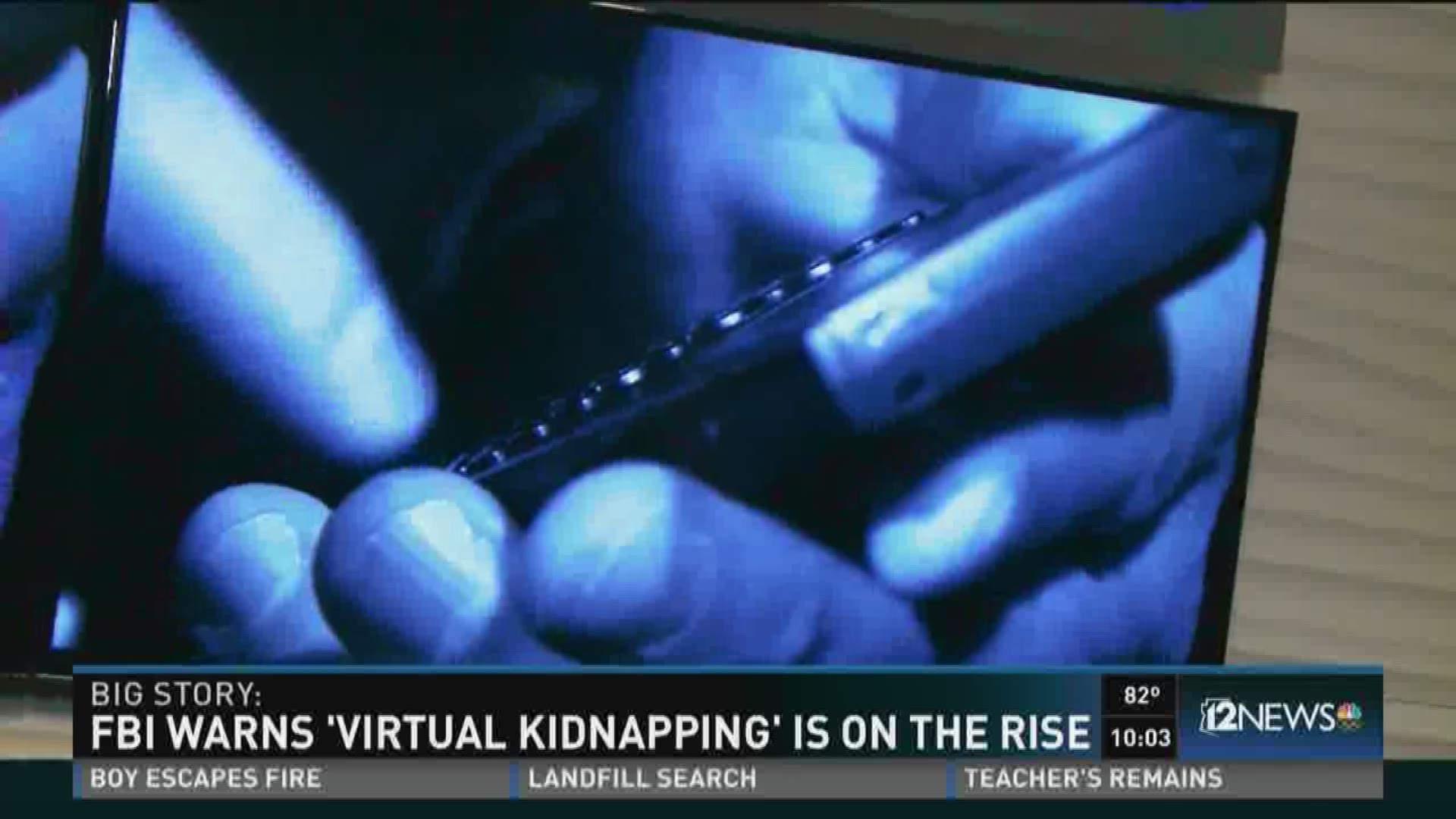It starts with a phone call.
“I pick up and hear a young girl's voice screaming,” said Miles Vance.
Seconds later, the someone on the line is telling you they've kidnapped your loved one. For Vance, it was his 20-year-old daughter he thought he heard screaming on the phone.
“As I tried to talk to her a man's voice came on and said he had kidnapped my daughter, wanted money, or he'd kill her,” Vance told NBC affiliate KGW.
Vance said he was on his way to clean out his bank accounts when his wife let him know she'd talked to their daughter and local authorities.
The call was a scam.
Their daughter was the victim of what's known as a virtual kidnapping.
"Virtual kidnapping takes many forms,” said Glenn Milnor, a special agent and spokesperson for the FBI in Phoenix.
“Both locally and nationally we're seeing an uptick in the threats,” Milnor told 12 News.
“The subjects are often out of our country that are calling up the victims and are threatening to harm the victims’ families or harm the victims themselves but rarely is there any abduction or any kind of violent act,” Milnor said.
While the FBI has known about the scheme for years, Milnor says scammers are now targeting a wider range of victims with fraud cases here in Arizona and across the country.
Investigators say suspects simply cold call hundreds of numbers until they find an innocent person susceptible to the scam.
“Most of the perpetrators are never in state, they don't know you, they don't know where you live, they don't know your family members,” said Milnor. “It’s all a fraud.”
He advises those targeted by a virtual kidnapping to never wire transfer money and to immediately try and get a hold of the family member allegedly kidnapped. Milnor also says people should look for red flags, like if the phone number is out of state or out of the country.
One last tip, he says is to ask the caller personal questions only your loved one would know. If they can’t answer, it’s likely a scam.
“The more we're aware, the more we're able to fight against it and make sure people aren't victims,” Vance said. “I don't want people to go through what I went through.”
For more information on virtual kidnapping you can go to the FBI’s website.

